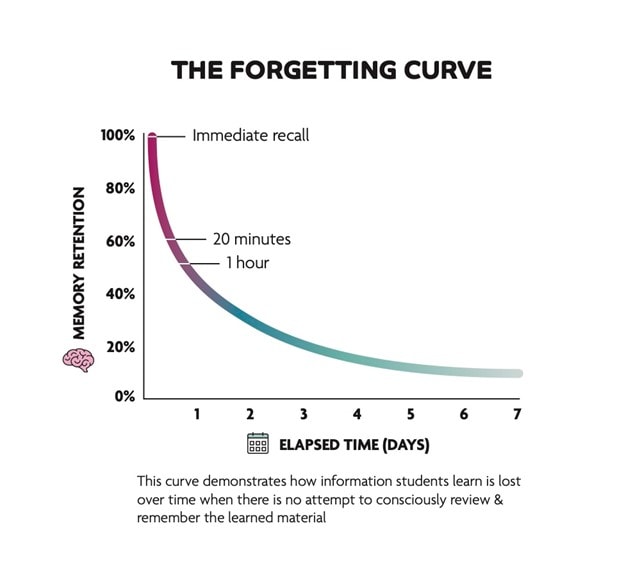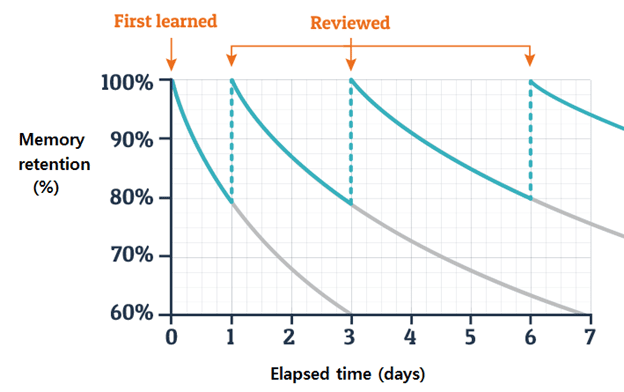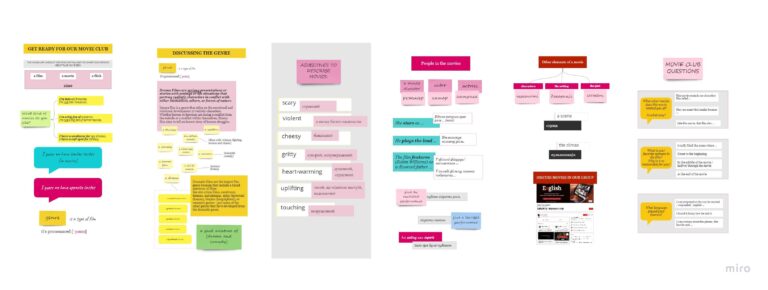Learning vocabulary is probably one of the most challenging aspects of language learning. It’s not always logical or linear like grammar is (more or less). It’s messy: you seem to know the word, and then there’s an unexpected new meaning. It can be tiresome: you learn it, and still can’t remember the words when you need it. And it’s endless: English has from 600 000 to 1 million words you can never hope to know, right? Sure, learning vocabulary is not easy, but it can be fun and can be effective if you avoid 3 major pitfalls.
Table of Contents
Difficulties in Learning English Vocabulary
Learning English vocabulary can be a challenge Here are some common difficulties that can arise when learning English vocabulary, and how to avoid them.
Learning English vocabulary can be a challenge Here are some common difficulties that can arise when learning English vocabulary, and how to avoid them.
Not remembering the meaning of words
Forgetting what a word means can make it difficult to understand its context and usage. Take a second to remember the word or look it up in the dictionary, even if you’re sure you’ve “learnt” it before. Don’t worry about it. It happens to everyone, even the best.
Feeling overwhelmed by the range of English vocabulary
English contains many unique words that have many nuanced meanings. This can make it difficult to learn all of the words that you need in order to communicate in the language. To avoid feeling overwhelmed, try picking a few each day and committing to remembering what they mean. Learning just a few words every day builds a strong knowledge base.
Words which look or sound like each other
Because English has so many words, many of them have similar spellings and sounds. Confusion between words that have similar meanings can be a barrier to your understanding of the language. To avoid this, pay attention when you come across words that look or sound similar and focus on learning their individual meanings. In addition, associating each word with an image or a mnemonic device can help you to remember them.
By following these simple tips, you can really unlock your potential when it comes to learning English vocabulary and ensure that you make progress towards fluency.

3 most common mistakes to avoid when learning English vocabulary
Learning individual words
Olena finds a list of cool slang words or phrasal verbs on the internet and tries to learn them. They don’t make sense, they don’t stick. She’s frustrated and quits learning them altogether.
Does it sound familiar?
What is she doing wrong?
First of all, she uses someone else’s list.
When you come across a word or phrase in a text, conversation, or podcast, you have some idea what it was about and how the word is used, and this context helps you “connect” the word to your memory.
In vocabulary learning, context is king. It’s useless to learn verbs without context for 2 reasons:
- without context, you can’t remember in what situation the word can be used, and
- sometimes you don’t use it correctly because you have no idea how it works.
In real life, words don’t occur in lists. The conversation would be about a recent project:
After the client looked through the offer I had been working on, he said he’d need more time to think which, I guess, was a polite way of turning me down.
Rather than providing you with a lengthy list of 10 phrasal verbs for business, I present you with only 2. This approach helps you to retain them more effectively as you can recall the specific situations in which they were used. Additionally, you will have the opportunity to observe how these 2 phrasal verbs interact with other words.
But this attention to context requires some time, which means you can’t learn a lot of words like that. Instead of 10, pick 3, but look really carefully how they are used in the context and try to use that context to say what you want to say.
So, do yourself a favor, don’t learn words in lists – choose fewer phrases with examples to focus on.

Choosing wrong words to learn
Some words are more useful than others. Most language experts recommend learning high-value vocabulary, which includes:
- Common verbs, adjectives and nouns
- Personally relevant vocabulary
Good monolingual dictionaries let you know if the word is a common verb: A1-C2 markers in Cambridge Dictionary, S1000 or W3000 in Longman Dictionary of Contemporary English Online, star system in Macmillan Dictionary, key 🔑 sign in Oxford Advanced Learner’s Dictionary online.
Focus on 1000-3000 most frequently used words at first, because these are the words you are also going to use most often. These are also the words used in definitions for other words you might see in the dictionary. The trick here is those are seemingly familiar words, and you think you know them already.
Dennis tends to use fancy words like “crescent “, “reticent” or “aggravate”, but still has trouble saying something like:
“Я мало не посивів, коли почув про це”.
He looks up the word “сивіти” and finds out that it’s the old and familiar verb “go“, just a different meaning (the 5th meaning – become). He didn’t think he needed to learn the verb “go”, because he “knows” it. I am using quotation marks because the meaning you know might not be the right meaning in this context, and most common words have multiple meanings.
As your English improves, you’ll learn more and more meanings of the same word. As you read and listen to various texts, don’t assume you know what the word means – especially if it doesn’t “fit” the context. Look up the other meanings and try them on in your own examples.
The common collocations with “go” are:
- go bald
- go blind
- go mad
- go bankrupt
- go senile
- go deaf
And the examples the dictionaries provide:
The bread’s gone moldy.
Her hair is going grey.
This milk has gone sour.
And the approximate equivalent in Ukrainian would vary depending on the context:
збліднути, посивіти, збанкрутувати, запліснявіти, оглухнути, вижити з розуму, осліпнути, оглухнути, облисіти, скиснути
The second thing to consider when choosing the vocabulary to learn is niche or situational vocabulary.
If you got a job where you have to communicate with foreign clients, you might want to brainstorm the phrases that you’d need. At first you might just write them down in your native language and translate them or ask someone for more natural ways to say them. Or you could google “frequent phrases to use in emails with clients” and choose the ones you think are most appropriate.
You can use Chat GPT to generate topical vocabulary or come up with mnemonic techniques to help you remember confusing words.
Knowing the most frequently used words and the situational vocabulary ensures that you can deal with most situations in your life in English.
Losing vocabulary

Katia can learn up to 35 phrases a week including the examples. Her imagination and memory allow her to memorize and use the target vocabulary well. If you give her a test after the class, she’d score 90-100%. The problems start a couple of weeks later, when she wants to use the word she knows she “knows”, but she can’t remember it. She loses motivation whenever this happens, because she expects herself to remember the word 10 weeks later without prior revisions.
Many learners think that if you’ve learned the word today, you will remember it “forever”. Fortunately or unfortunately, it’s not a “Matrix” movie, where you could upload the skills to your brain and use them whenever necessary. In our reality, learning is not a “forever” thing.
As soon as we learn something, we start forgetting it (Picture 1). This a natural process, so don’t expect yourself to be an exception and to recall all the words you once memorized.
Research indicates that in order to truly remember a word and be able to effectively utilize it in context, one needs between 12 to 70 exposures of the word. These exposures often arise incidentally while reading articles or viewing videos. The more one reads and listens to English texts, the more likely they are to encounter and remember the words.
But if you can’t wait for the next exposure, you can create your own, by revising your target vocabulary. Testing (including self-testing) significantly improves your memory. Every revision helps you “glue” the word or phrase to your memory a bit (see here), but you have to do it regularly and frequently.

For revision, you can use flashcards, re-read your notes, use the vocabulary in your daily life (chatting on Facebook, writing emails etc). Try to expose yourself to the word at least 7 times – only then you can expect to remember the word when you need and use it correctly.
The takeaways:
- Choose the words not because they are unfamiliar and interesting, but because they are useful. Focus on K1-K3 and niche vocabulary first.
- When learning words, focus on phrases and collocations, not separate words. Use example sentences to remember how the word is used in context.
- Revise target vocabulary at least twice a week the first couple of weeks, and review the words in examples.




